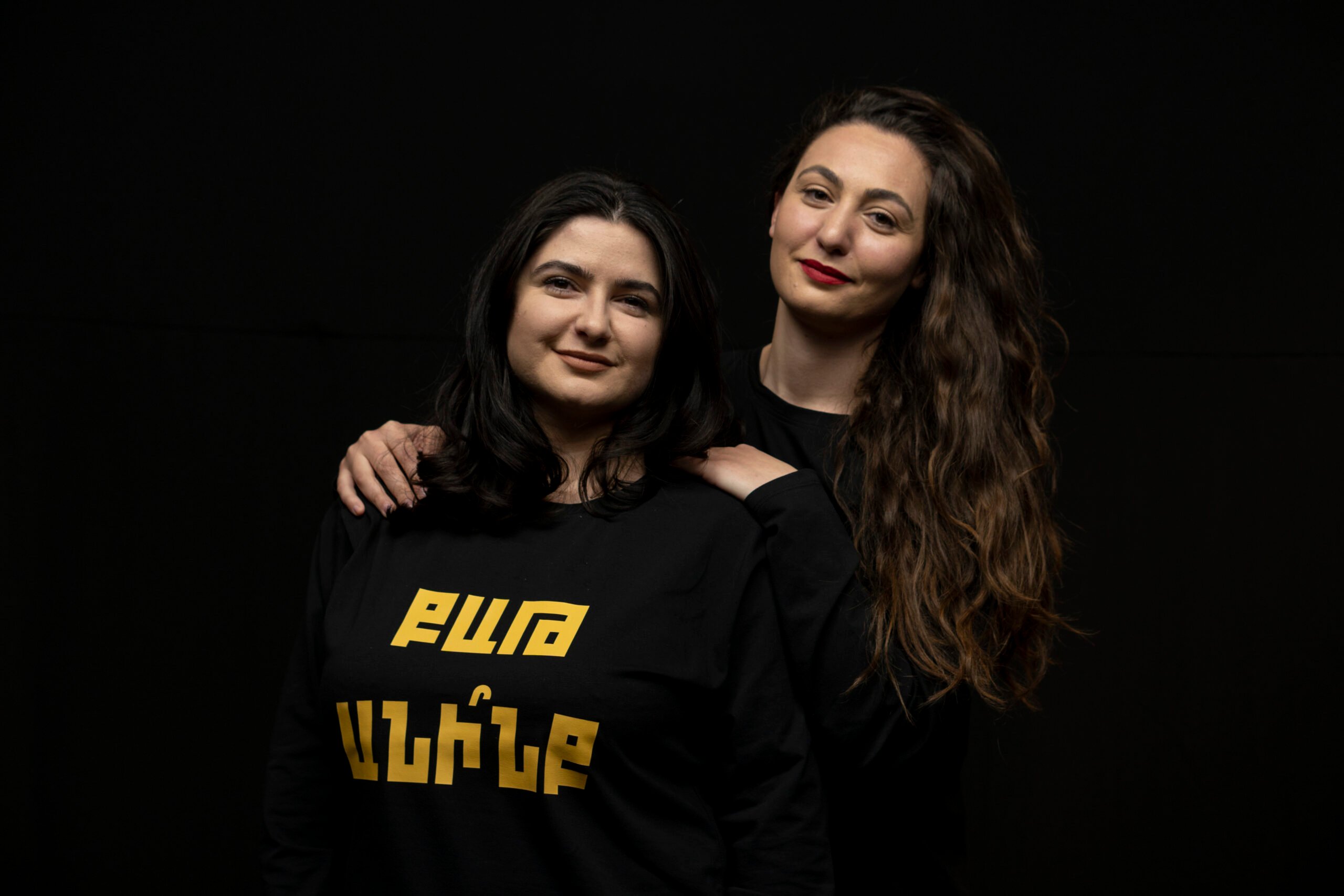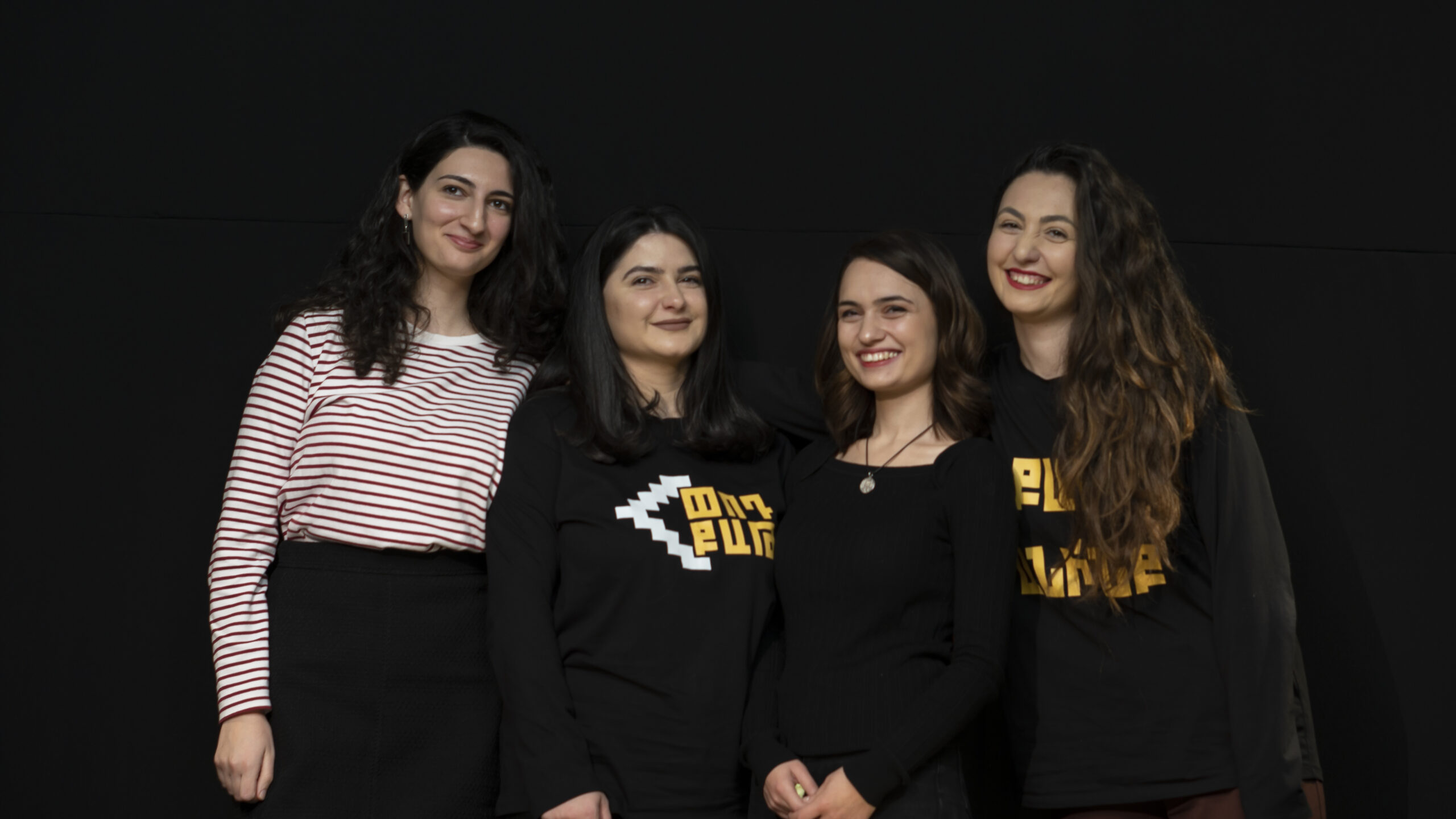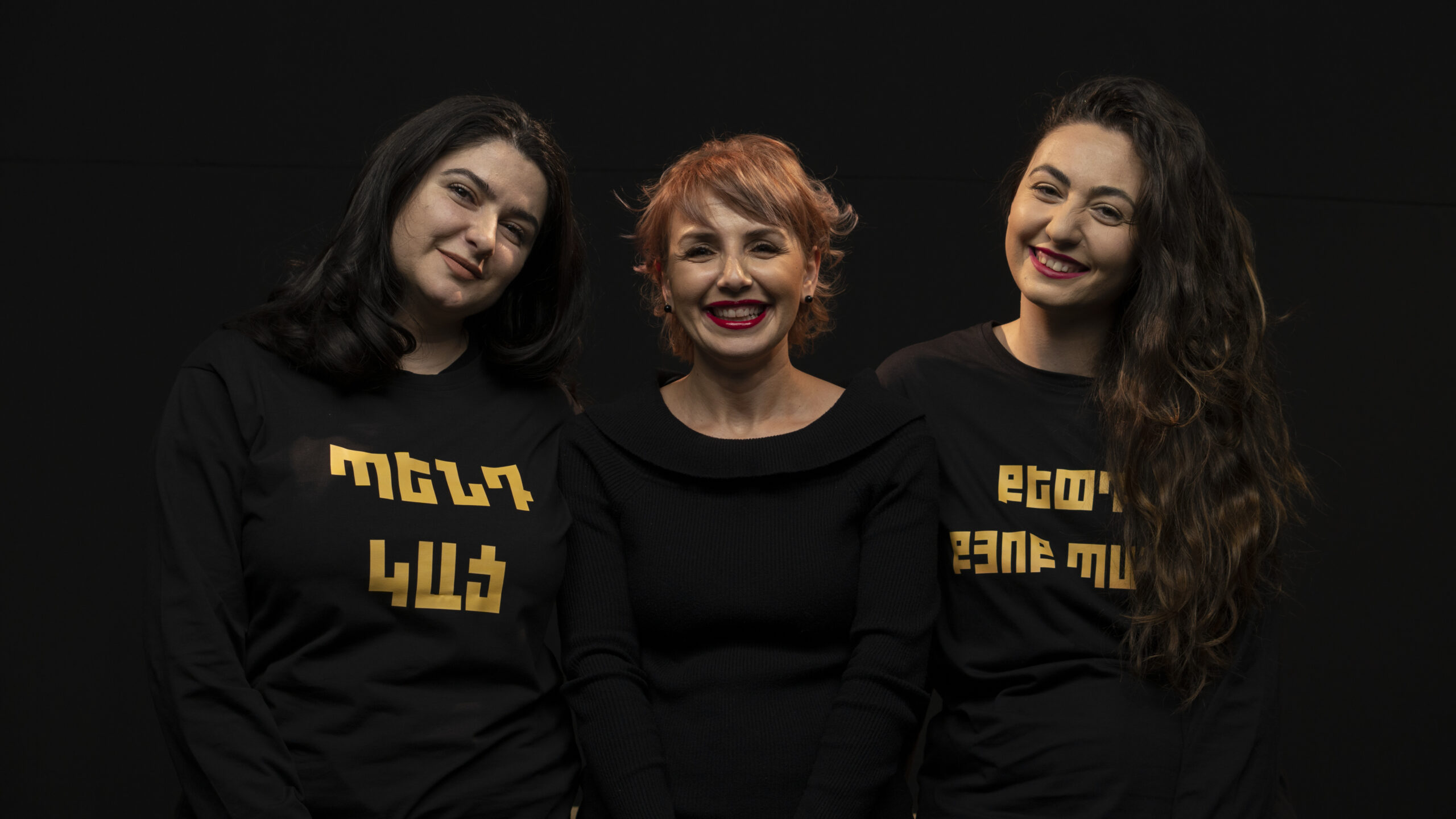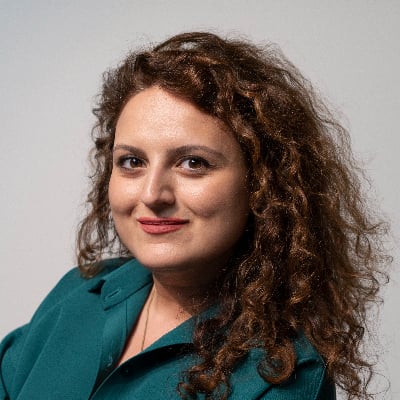
Their journey from concept to realization was challenging and full of obstacles. During the Artsakh Blockade, two journalist friends, Mariam and Tatevik, decided to document the media landscape of Artsakh through a podcast. Their goal was to shine a light on the difficulties that presenters faced while working with frequent power outages, as well as the difficulties that journalists encountered when they had to travel to the location without access to fuel or transportation.
They didn’t manage to bring it to life, but they brought the idea from Artsakh to Armenia.
With some argument and compromise, the two journalists, with a history of friendship of almost two decades, finally decided to bring their ideas to life. They immediately agreed that the foundation of their project, which they named “PodQat,” should revolve around preserving their local dialect and documenting significant events. The name “PodQat” was inspired by this concept.
In the dialects of Hadrut, Martakert, and several other regions of Artsakh, the word “Qat” means conversation. Now, they are delighted to share that they frequently receive letters from their followers who, in various situations, inadvertently say “PodQaT” instead of “podcast”.
“When we started, it was challenging to identify our target audience and who would be interested in our stories,” says Mariam. She thought that people from Artsakh would be the primary listeners, while Tatevik suggested making the stories relatable to Armenians, too. However, Mariam was determined to create an online platform where people could listen to stories in their dialect. She also noticed that many people from Artsakh were embarrassed to speak their dialect and hoped their project would help overcome this cultural barrier. “Our goal was to provide a safe space for people to connect with their culture and language,” says Mariam.

PodQat guests Shogher and Nina, the creators of the Inadu podcast. Photo credit: Hakob Hovhannisyan.
The authors of “PodQat” believe they have partially achieved their goal. They have noticed that their podcast has inspired people to use the Artsakh dialect in their social media posts and comments. They have also received words of appreciation from their followers for creating an island for this dialect. Mariam is particularly pleased that “PodQat” has paved the way for more dialect-centered podcasts.
Tatevik believed maintaining a natural conversation flow and sincerity were crucial for her podcast. To achieve this, she made sure to preserve the dialectical environment. By doing so, there was no need for any artificial editing or rewriting to present the emotions and thoughts to the audience in a false manner while describing the arduous journey they had been through.
“In Artsakh, we never imagined that our podcast could be in dialect. The reality there was quite different. We got concerned about the potential disappearance of the dialect over time, and we believed that it would be more comfortable for our guests to express themselves in their native dialect. We thought it would lead to more sincere, emotional, and high-quality conversations. Initially, our focus was on documenting the dialect and capturing the events and stories that unfolded. We aimed to uncover and preserve the chronicle of these events through the perspectives of our guests,” Tatevik explains.
Concluding their podcast episodes and observing the audience response, the creators are pleased to note frequent positive feedback from Armenian listeners. In their comments, many express how, after listening to several episodes, they find it easier to understand the dialect and gain insight into numerous events they were previously unaware of or had perceived differently.
Along with these positive observations, Tatevik has also noticed significant hate speech, stereotypical attitudes, and divisions between local Armenians and Armenians from Artsakh.
“Analyzing these comments, it’s evident that a sense of mutual understanding is beginning to emerge. Local Armenians and those from Artsakh appear to be initiating conversations with each other, but most importantly, they are beginning to truly listen to one another. When you listen to someone, you begin to understand them, and you realize that stereotypes or feelings of animosity and hatred are slowly dissipating,” Tatevik remarks.

PodQat guest journalist Tsovinar Barkhudaryan. Photo: Hakob Hovhannisyan
To highlight the commonalities and similarities, they created an initiative called “PodQat” dictionary on their Facebook page. They ask the residents of various regions and villages of Armenia, along with the people of Artsakh, to write how they say certain words in their respective dialects.
Mariam explains that they have gathered over a dozen different dialectal versions of the word “snail”. Upon analyzing the data, they have found that the word sounds similar across different regions such as Artsakh, Vanadzor, Vedi, and Martuni.
The first ten episodes of the podcast featured guests from the media industry of Artsakh. Mariam and Tatevik have managed to successfully adopt and adapt one aspect of the original idea from Artsakh – their desire to converse with media experts. However, there is still more to come.
In addition to documenting stories, the hosts have expanded their focus to include discussions about social and domestic issues impacting the people of Artsakh. In upcoming episodes, they plan to engage Armenian guests whose work is connected to Artsakh or its people, aiming to challenge stereotypes and foster dialogue.


Add new comment
Comments by Media.am readers become public after moderation. We urge our readers not to leave anonymous comments. It’s always nice to know with whom one is speaking.
We do not publish comments that contain profanities, non-normative lexicon, personal attacks or threats. We do not publish comments that spread hate.